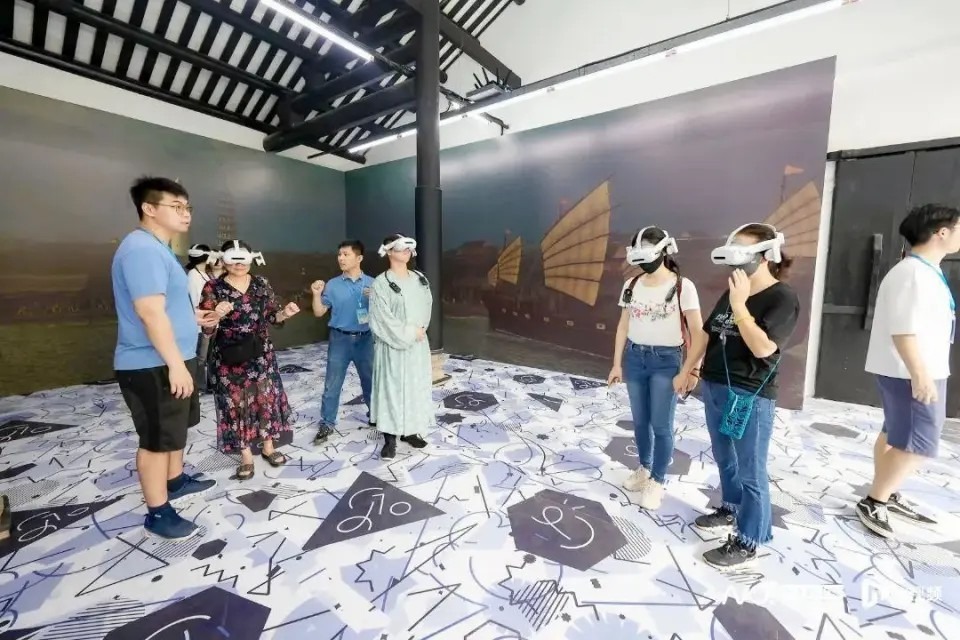Hanban pursues global teaching mission

The Belt and Road is about building a trade and infrastructure network connecting Asia with Europe and Africa along ancient trade routes, but it is also about connecting people in 65 countries that are linked to the initiative.
That's why the Confucius Institute, which was conceived 12 years ago to teach foreigners the Manadarin language and immerse them in Chinese culture, will increase its presence in foreign countries to enhance "connectivity in mind", said Xu Lin, former director-general of the Confucius Institute Headquarters in Beijing, which is also known as Hanban.
"Thanks to the joint efforts of the Chinese and foreign sides, Confucius Institutes have been launched in 51 of the 65 countries linked to the initiative's two main routes - the Silk Road Economic Belt and the 21st Century Maritime Silk Road," Xu said ahead of the Belt and Road Forum for International Cooperation that concluded in Beijing on Monday.
By now, 135 Confucius institutes and 129 Confucius classrooms have been set up in the 51 countries, accounting for a quarter of the operations that the Confucius Institute Headquarters has created, said Xu, who recently retired from the nongovernmental organization to serve as a national political adviser.
Confucius Institutes, the network of not-for-profit Mandarin language-teaching schools and cultural centers, are named after Confucius, the eponymous philosopher of 2,500 years ago. They are now on at least 500 campuses globally.
"You see there are still 14 countries that have no Confucius Institutes," Xu told China Daily. "As usual, we do not open new Confucius Institutes on our own initiative, so the next step, we'll follow the demands of these countries and add new institutes or classrooms if the need arises."
In an earlier interview, Xu said that Hanban planned to increase the Confucius Institute presence in China's neighbors as well as other members of the BRICS countries, namely Brazil, Russia, India and South Africa, as they have large populations, and their economic and political connections with China are growing closer.
There also has been a surge in demand for Mandarin teaching in those regions, she said.
Citing an old Chinese saying, Xu said the key to sound relations between states lies in amity between the people, and the key to amity between the people lies in heart-to-heart exchange.
She said that over the past decade, the Confucius Institutes along the Belt and Road have got the people they reached out to know China better by teaching the language and holding cultural activities.
At least 34,000 Chinese Confucius Institute directors, teachers and volunteers have been sent to these regions. They have offered Chinese business, tourism, translation and other courses to more than 2 million residents, according to the latest statistics of the Hanban.
In all, 250 young scholars of these countries have joined the Confucius China Study Plan, which supports foreign students seeking to complete PhD programs in designated academic areas of the humanities and social sciences in China, or sponsors experts and outstanding students for short-term exchanges.
Some of the scholars are conducting academic research in relation to the Belt and Road, Xu said.
Xu, however, also noted the challenges in both the operation and adding of Confucius Institutes in some of the countries involved with the Belt and Road.
"Economically, the development of the countries varies considerably, and in some regions, not only the physical conditions are not that good, but security is a grave concern for our teachers," Xu said, adding that most of the teachers are single children in their families.
Another challenge is the shortage of talented instructors who have a good command of foreign languages, which are diverse in the countries along the Belt and Road.
"There are at least 90 languages being spoken in these countries, where 54 languages are official ones; we are far from being able to groom teachers linguistically to survive and thrive in some of the countries," Xu said.
That's why it is necessary to train more students to master what is usually called "non-common foreign languages", Xu said.
Xu was at Western Kentucky University at Bowling Green on May 5 to inaugurate the first Model Confucius Institute Building in North America.
huanxinzhao@chinadailyusa.com
| Xu Lin, former director-general of Confucius Institute headquarters, talks about Confucius Institutes and Belt and Road Initiative in Kentucky in early May. Zhao Huanxin / China Daily |
Today's Top News
- Auto market rides high on NEV sales growth
- China, Spain agree to advance partnership
- Xi hails governance exchanges between CPC, CPV
- EU betraying its proclaimed principles: China Daily editorial
- Visit highlights resilient, dynamic and forward-looking China-Spain partnership
- WIPO: China retains its position as the global leader with 1.8 million patent applications































